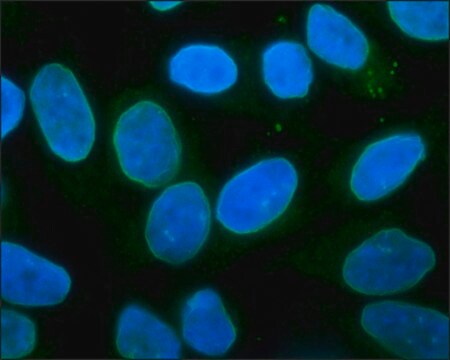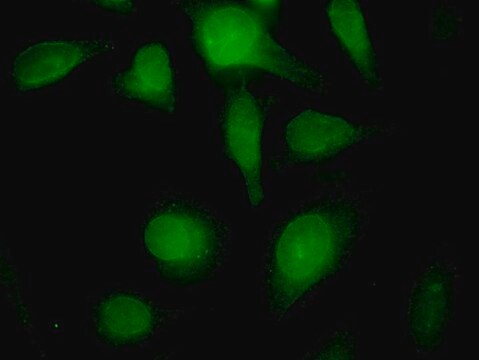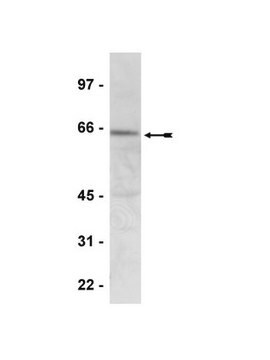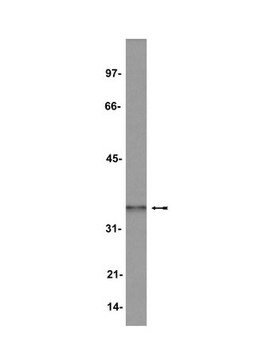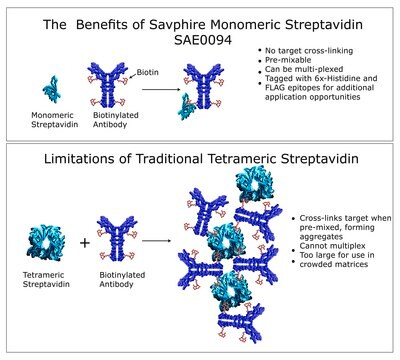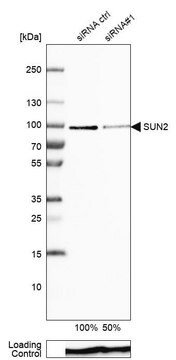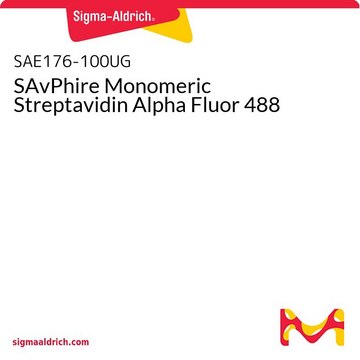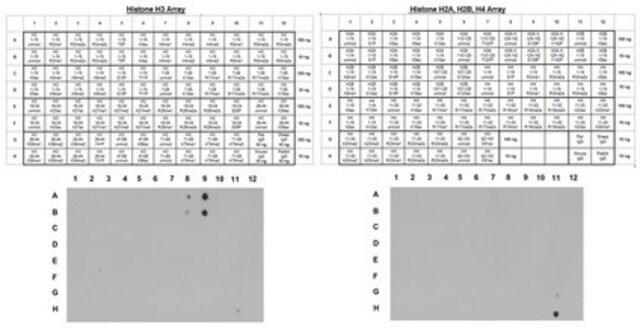MABT831
Anti-Lamin B Receptor (LBR) Antibody, clone BB2SS3F3
clone BB2SS3F3, from mouse
Synonym(e):
LMN2R, Integral nuclear envelope inner membrane protein, LBR
About This Item
Empfohlene Produkte
Biologische Quelle
mouse
Qualitätsniveau
Antikörperform
purified immunoglobulin
Antikörper-Produkttyp
primary antibodies
Klon
BB2SS3F3, monoclonal
Speziesreaktivität
mouse, human
Verpackung
antibody small pack of 25 μg
Methode(n)
immunocytochemistry: suitable
immunofluorescence: suitable
western blot: suitable
Isotyp
IgG1κ
NCBI-Hinterlegungsnummer
UniProt-Hinterlegungsnummer
Versandbedingung
ambient
Posttranslationale Modifikation Target
unmodified
Angaben zum Gen
human ... LBR(3930)
Allgemeine Beschreibung
Spezifität
Immunogen
Anwendung
Zellstruktur
Western Blotting Analysis: A representative lot detected Lamin B Receptor (LBR) in HeLa cell lysate, mouse C2C12 cell lysate, and in adult mouse fibroblasts (MAFs) either LBR+/+ or LBR -/- (Courtesy of Dr. Brian Burke, Institute of Medical Biology, A*STAR, Singapore).
Immunocytochemistry Analysis: A 1:50 dilution from a representative lot detected Lamin B Receptor (LBR) in HeLa cells.
Immunocytochemistry Analysis: A representative lot detected Lamin B Receptor (LBR) in HeLa and NIE-115 cells, as well as in mouse adult fibroblasts (MAF LBR+/+ vs MAF LBR-/-) (Courtesy of Dr. Brian Burke, Institute of Medical Biology, A*STAR, Singapore).
Qualität
Western Blotting Analysis: 2 µg/mL of this antibody detected Lamin B Receptor (LBR) in 10 µg of mouse spleen tissue lysate.
Zielbeschreibung
Physikalische Form
Lagerung und Haltbarkeit
Sonstige Hinweise
Haftungsausschluss
Sie haben nicht das passende Produkt gefunden?
Probieren Sie unser Produkt-Auswahlhilfe. aus.
Lagerklassenschlüssel
12 - Non Combustible Liquids
WGK
WGK 1
Flammpunkt (°F)
does not flash
Flammpunkt (°C)
does not flash
Analysenzertifikate (COA)
Suchen Sie nach Analysenzertifikate (COA), indem Sie die Lot-/Chargennummer des Produkts eingeben. Lot- und Chargennummern sind auf dem Produktetikett hinter den Wörtern ‘Lot’ oder ‘Batch’ (Lot oder Charge) zu finden.
Besitzen Sie dieses Produkt bereits?
In der Dokumentenbibliothek finden Sie die Dokumentation zu den Produkten, die Sie kürzlich erworben haben.
Unser Team von Wissenschaftlern verfügt über Erfahrung in allen Forschungsbereichen einschließlich Life Science, Materialwissenschaften, chemischer Synthese, Chromatographie, Analytik und vielen mehr..
Setzen Sie sich mit dem technischen Dienst in Verbindung.